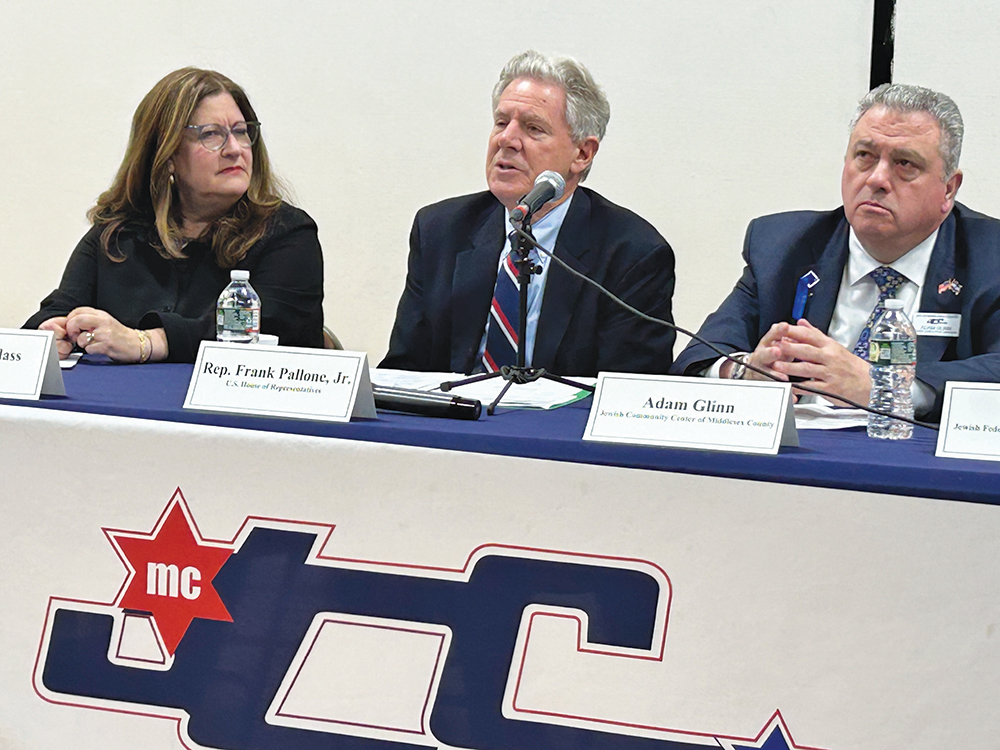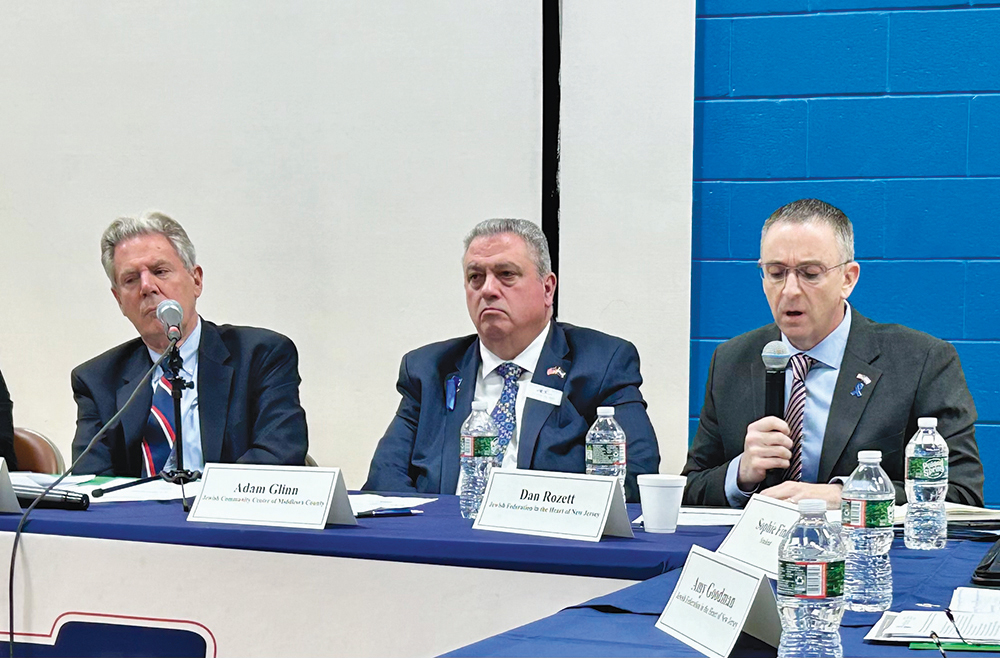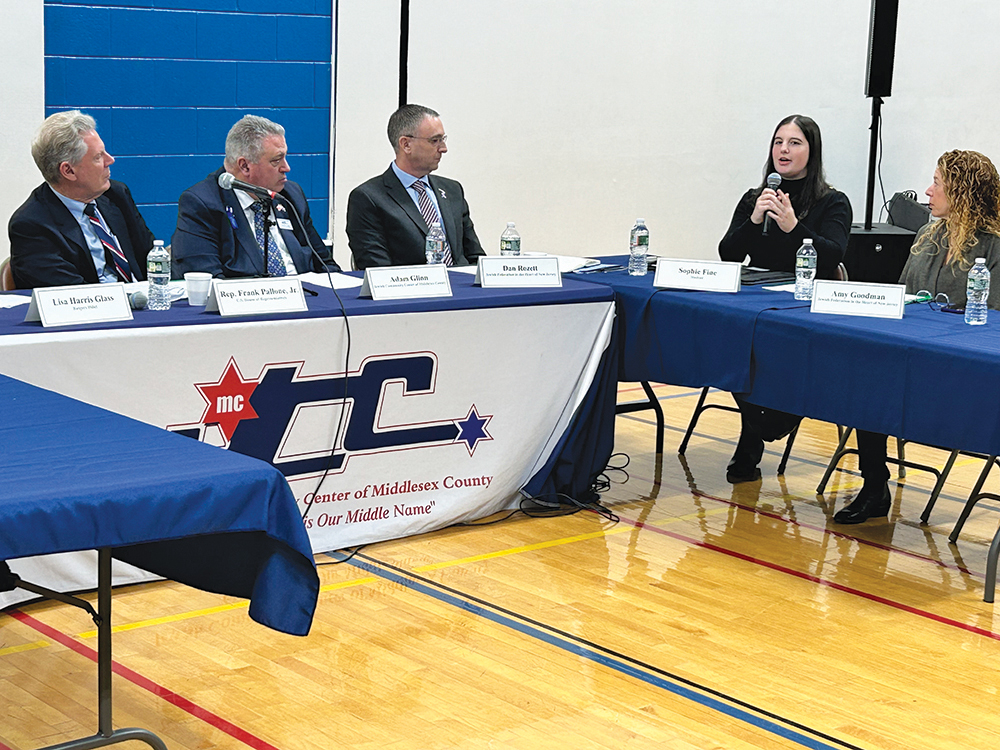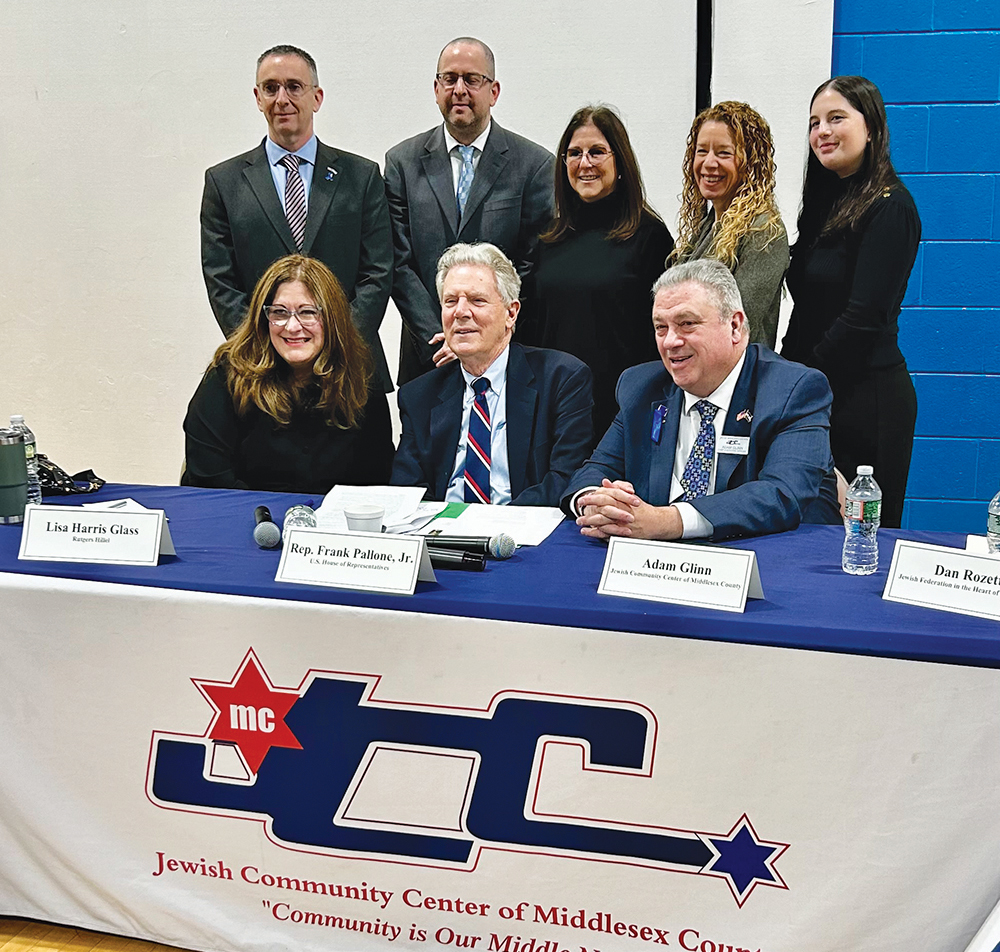
Fortunately for the Jewish community, and for all those concerned about the inflammatory effects of social media, U.S. Rep. Frank Pallone, Jr. (D-NJ, 6th District) has remained focused on the need to push social media CEOs to clean up their platforms.
As The Jewish Link reported on October 26 (http://tinyurl.com/4m929pnn), Pallone held a press conference in Edison on October 16, in which he pointed out the rampant graphic and violent content and disinformation on social media platforms X, Meta, YouTube, TikTok and Telegram, especially as it related to the Israel/Hamas war, and exhorted the CEOs of these platforms to take immediate steps to remove this material. He challenged the platforms to “vigorously enforce their terms of service, immediately remove content that violates those terms, and permanently ban any user that intentionally attempts to spread or broadcast acts of terror, violence or extremism.”
Recent efforts by the congressman demonstrate that his commitment to this initiative is steady and strong.

On December 13, Pallone issued a press release with an update on this effort. He reported that, as the ranking Democrat on the Congressional Committee on Energy and Commerce, he assigned staff members to meet with representatives of the major social media companies in October to convey his concerns about the content on their platforms.
“Almost every day since the attacks on October 7, 2023, there have been new reports describing how terrorist organizations and others have used social media platforms to inflict more suffering on civilians, mislead the public about the Israel-Hamas conflict, and spread hate,” Pallone said in the release. “In other cases, users spread doctored content designed to incite outrage among the Israeli and Palestinian public.”
The release noted that Pallone sent letters on December 13 to the CEOs of Meta, TikTok, X (formerly Twitter), and YouTube to urge them to devote more resources to counter harmful content. Pallone demanded each platform respond to a series of 17 questions to understand its efforts to address extreme, graphic, false, misleading and harmful content on its platform.
The congressman asked for responses from the social media CEOs by January 3. (See the press release and full contents of the letters at http://tinyurl.com/3z6zk7c8.
On December 20, Pallone held a roundtable discussion with Jewish communal leaders in his district at the JCC of Middlesex County in Edison, to draw greater attention to this initiative. Roundtable participants were Lisa Karasic, chief communications officer of the Jewish Federation in the Heart of NJ; Dan Rozett, director of community relations and Israel engagement of the Jewish Federation in the Heart of NJ; Liran Kapoano, Jewish Community Relations Council co-chair and board member of the Jewish Federation; Amy Goodman, a member of the JCRC; Adam Glenn, CEO of the JCC of Middlesex County; Lisa Glass, CEO of Rutgers Hillel; and Sophie Fine, a student at Ma’ayanot Yeshiva High School for Girls in Teaneck and a resident of Highland Park.

The Jewish Link attended the roundtable and observed the discussion.
In his introductory remarks, Pallone noted that while “there is no federal regulation of this [social media content] per se,” they can urge the social media platforms to enforce their own terms of service. But there are no federal laws on this matter.
He singled out X (formerly Twitter) as “the most disturbing and greatest perpetrator” in terms of not monitoring and removing offensive content. He shared that when Commerce and Energy Committee staff met with representatives of X in October, staff at X stated that they want users to act as unpaid content moderators, which Pallone termed “totally irresponsible.”
In the roundtable discussions, Kapoano suggested that one of the big issues with offensive social media content is the “monetization of falsehood,” with certain influencers and their platforms profiting from misinformation. Karasic commented that Congress could frame the issue of harmful social media content as a national security concern, given the role of Russian and Chinese sources in perpetuating misinformation. She noted that the courts have limited free speech when national security is at risk.
Glass stated that from her vantage point at Rutgers, she has observed that Instagram and a newer app, YikYak, are particularly popular among college-age students. She cited a recent study that reported that 18-25 year-olds, who get much of their news through social media, tend to develop bad views of Jews as a result. Glinn noted that speech often leads to conduct and urged that Congress pursue legislative remedies, along the lines of European Union legislation that restricts certain forms of speech on social media.
Rozett shared research from the Anti-Defamation League, which reviewed the major social media platforms using 11 metrics of accountability established by different well-regarded NGOs, and found that all the platforms lack some of the measures that can stem online hate and harassment. Most platforms earned an overall grade of C or less. (To view this study, see: http://tinyurl.com/2r7fdcbj.)
Fine shared that she has personally experienced a “flood of falsehood” on social media sources since late October and Jewish friends in public schools face a lot of accusations and slander connected to the conflict between Hamas and Israel. Goodman shared her concern that two of her sons are now on college campuses; she asserted that violations of social media companies’ terms and conditions should result in penalties.

Pallone wrapped up the roundtable with a hopeful perspective, noting that the concerns raised and tactics suggested by Jewish community leaders about harmful content on social media can lead to benefits for other minority groups as well.
The Jewish Link plans to continue to monitor the progress of Pallone’s initiative in this area and report both on the responses of social media CEOs and the next steps the congressman undertakes to foster greater social responsibility on social media platforms.
Harry Glazer is the Middlesex County editor of The Jewish Link. He can be reached at [email protected]









